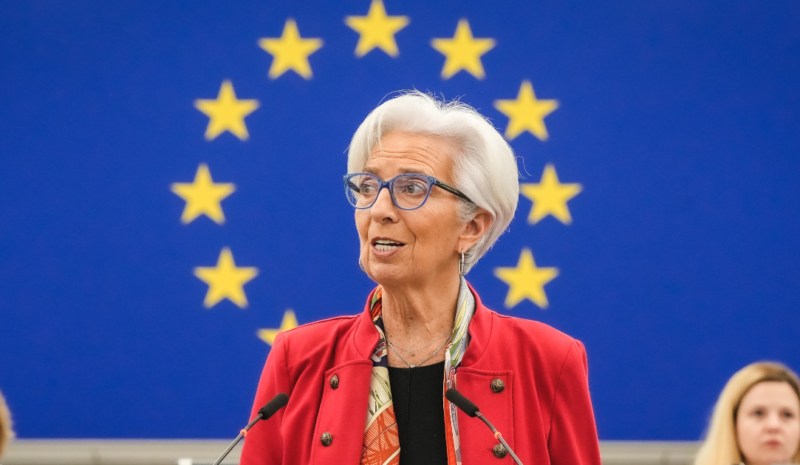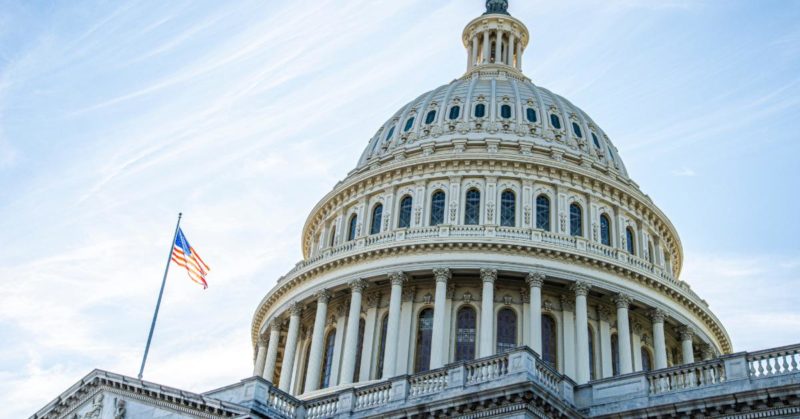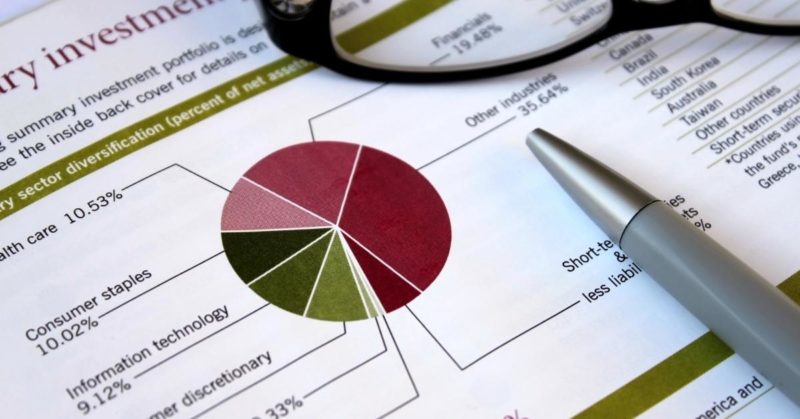Category Archive: 6b.) Mises.org
Time Is Running Out!
YOUR GIFT WILL HELP US DO MORE IN 2024.
With your gift of $25 or more, you will receive a copy of Joe Salerno's The Progressive Road to Socialism.
Recurring donors of $10 who give $100 will also receive a copy of The Progressive Road to Socialism and renew their Membership through 2024.
Donate today!
Read More »
Read More »
How the American Revolution Turned North American Foreign Trade on Its Head
[Chapter 1 of Rothbard's newly edited and released Conceived in Liberty, vol. 5: The New Republic: 1784–1791.]
After peace came in 1783, the new republic faced a two-fold economic adjustment: to peacetime from the artificial production and trade patterns during the war, and to a far different trading picture than had existed before the war. The largest change between the two eras of peace was the shift in trading patterns resulting from...
Read More »
Read More »
Central Banks Brought Inflation. Now they Bring Stagnation.
Although the Federal Reserve and the European Central Bank’s message regarding interest rate cuts seems clear, reiterating their commitment to reducing inflation, the market is expecting between five and six interest rate cuts, between 125 and 150 basis points, in the next twelve months.
This shows us the bubble bias of many investors. We live in a world where two generations of market participants have only seen rate cuts and massive liquidity...
Read More »
Read More »
Federal Student Loans Drive Up College Tuition Levels
Like every other government program designed to make something “more affordable,” the student loan program has managed to drive college tuition to atmospheric levels and saddle students with massive levels of debt.
Original Article: Federal Student Loans Drive Up College Tuition Levels
Read More »
Read More »
Let them Merge: Foreign Acquisition of US Steel
Nippon Steel's proposal to merge with US Steel is meeting opposition from the usual suspects in Washington, not to mention Tucker Carlson. Their hysteria is off the charts.
Original Article: Let them Merge: Foreign Acquisition of US Steel
Read More »
Read More »
America’s Corn Crop Comes from “Corny” Subsidies
America's famous Corn Belt should better be known as the nation's Subsidy Belt.
Original Article: America's Corn Crop Comes from "Corny" Subsidies
Read More »
Read More »
Tyler Cowen on the GOAT in Economics
Tyler Cowen is Holbert L. Harris Chair of Economics and chairman of the Mercatus Center at George Mason University. With Alex Tabarrok, he runs the popular economics blog Marginal Revolution. Tyler joins Bob to discuss his latest book.
Tyler's New Book for Free: Mises.org/HAP428a
Tyler's Blog: Mises.org/HAP428b
Join Tom DiLorenzo, Joe Salerno, and Patrick Newman in Tampa on February 17: Mises.org/Tampa2024Use code "Action24" for 15% off...
Read More »
Read More »
The Bad Deal That Was the New Deal: FDR’s Assault on Individual Rights
The New Deal’s War on the Bill of Rights: The Untold Story of FDR’s Concentration Camps, Censorship, and Mass Surveillanceby David T. BeitoIndependent Institute, 2023; x + 379 pp.
Few if any readers of this column admire Franklin Roosevelt, but as the historian David Beito reminds us in this outstanding book, most of his professional colleagues rank Roosevelt among our greatest presidents, second only to Abraham Lincoln. Those who accord him this...
Read More »
Read More »
When Medical Authorities Went Totalitarian: Understanding Covid Policies and Protocols
Review: The New Abnormal: The Rise of the Biomedical Security State
Senator Rand Paul mentions Aaron Kheriaty’s The New Abnormal: The Rise of the Biomedical State in his book Deception: The Great Covid Cover-Up. Dr. Kheriaty’s online biography includes the following information:
Dr. Kheriaty is a plaintiff in the landmark free speech case Missouri v. Biden challenging government censorship on social media. . .. Dr. Kheriaty also serves in teaching...
Read More »
Read More »
A Message from Tom DiLorenzo: Help Us in Our Fight to Save Freedom in America
Please help us in our fight to save freedom in America—and indeed the rest of the world—by making as generous a donation as you can.
I became a student of Austrian economics and libertarian philosophy by accident. In my first semester in college in 1972, I signed up for Principles of Microeconomics. In the classroom was a bookshelf that happened to have all the back issues of The Freeman published by the Foundation for Economic Education. I started...
Read More »
Read More »
2024 Predictions (and New Years Resolutions)
On the final Radio Rothbard of 2023, Ryan McMaken and Tho Bishop are joined by Patrick Newman. At a recent Mises event, Newman made some bold predictions about the Federal Reserve's actions in 2024, some of which already look to becoming true. The three talk about what may be on the table for the new year for the economy, politics, and foreign affairs.
"Are We Headed for a Recession in 2024?" by Patrick...
Read More »
Read More »
Why Secession Offers a Path to Wealth and Self-Determination
[This article is chapter 5 of Breaking Away: The Case for Secession, Radical Decentralization, and Smaller Polities. Now available at Amazon and in the Mises Store.]
One of the most consistent and enthusiastic defenders of human rights and “natural rights” in the twentieth century was the economist and historian Murray Rothbard. A self-described libertarian, Rothbard would also have fit in well among the more radical liberals of the nineteenth...
Read More »
Read More »
The Problems with Post-Trump Populism
When Murray Rothbard established a realignment in libertarian thought, his standard was determined by sovereignty rather than bipartisanship. A right-wing populist platform might be the most popular campaign strategy in the last few years. Since Brexit, a trend has swept a wide range of the globe. The question remains what this political revolution should be called. If it were a daring step away from the establishment, spectators might be concerned...
Read More »
Read More »
From Bastiat’s Defense of Exchange to Ideal Government
Frédéric Bastiat is justifiably famous among believers in liberty. His many classic contributions include The Law and his essays “Government” and “That Which Is Seen and That Which Is Not Seen,” not to mention some of the best reductio ad absurdum arguments ever (such as “The Candlemakers’ Petition” and “The Negative Railway”) and more. Less well known are other essays, such as his election manifesto of 1846, which illustrated what a principled...
Read More »
Read More »
Modern Portfolio Theory Is Mistaken: Diversification Is Not Investment
According to modern portfolio theory (MPT), financial asset prices always fully reflect all available and relevant information, and any adjustment to new information is virtually instantaneous. Thus, asset prices respond only to the unexpected part of information since the expected portion is already embedded in prices.
For example, if the central bank raises interest rates by 0.5 percent, and if market participants anticipated this action, asset...
Read More »
Read More »
A Free and Open Internet Is a Threat to the Establishment
Last week, a video clip of Francis Fukuyama went viral. In the clip, the political scientist called freedom of speech and a marketplace of ideas “18th century notions that really have been belied (or shown to be false) by a lot of what’s happened in recent decades.”
Fukuyama then reflects on how a censorship regime could be enacted in the United States.
But the question then becomes, how do you actually regulate content that you think is noxious,...
Read More »
Read More »
The State Does Not Compromise and Neither Will We
I often think of the great Henry Hazlitt, a hero and supporter of the Mises Institute. He was a tireless voice of reason. He once said at a Mises birthday celebration, “We have a duty to speak even more clearly and courageously, to work hard, and to keep fighting this battle while the strength is still in us. Even those of us who have reached and passed our seventieth birthdays cannot afford to rest on our oars and spend the rest of our lives...
Read More »
Read More »
The State Does Not Compromise and Neither Will We
I often think of the great Henry Hazlitt, a hero and supporter of the Mises Institute. He was a tireless voice of reason. He once said at a Mises birthday celebration, “We have a duty to speak even more clearly and courageously, to work hard, and to keep fighting this battle while the strength is still in us. Even those of us who have reached and passed our seventieth birthdays cannot afford to rest on our oars and spend the rest of our lives...
Read More »
Read More »
COP28: Climate Catastrophism Wins as the World Loses
World elites gathered in yet another attempt to remake the world in a different image, with so-called climate change invoked as the catalyst for the meeting. As one can imagine, their "good" society is not very good for those who are not elites.
Original Article: COP28: Climate Catastrophism Wins as the World Loses
Read More »
Read More »
The Immorality of COP28
As the delegates gather for COP28 to set an agenda to "fight climate change," we should remember what they are seeking to do: destroy the world's economy as we have known it.
Original Article: The Immorality of COP28
Read More »
Read More »





























